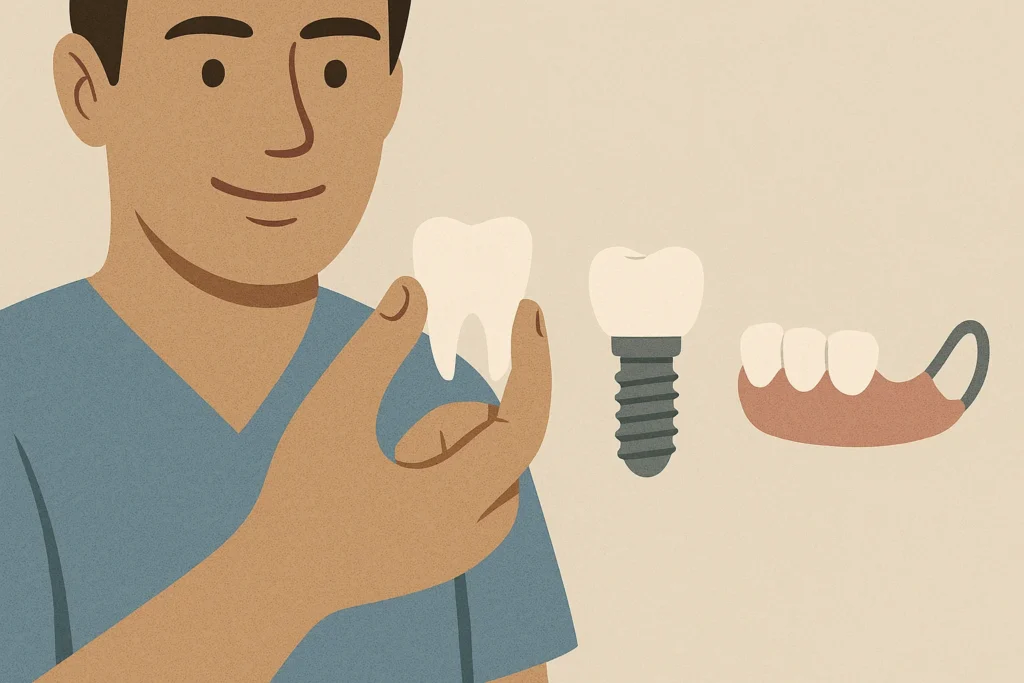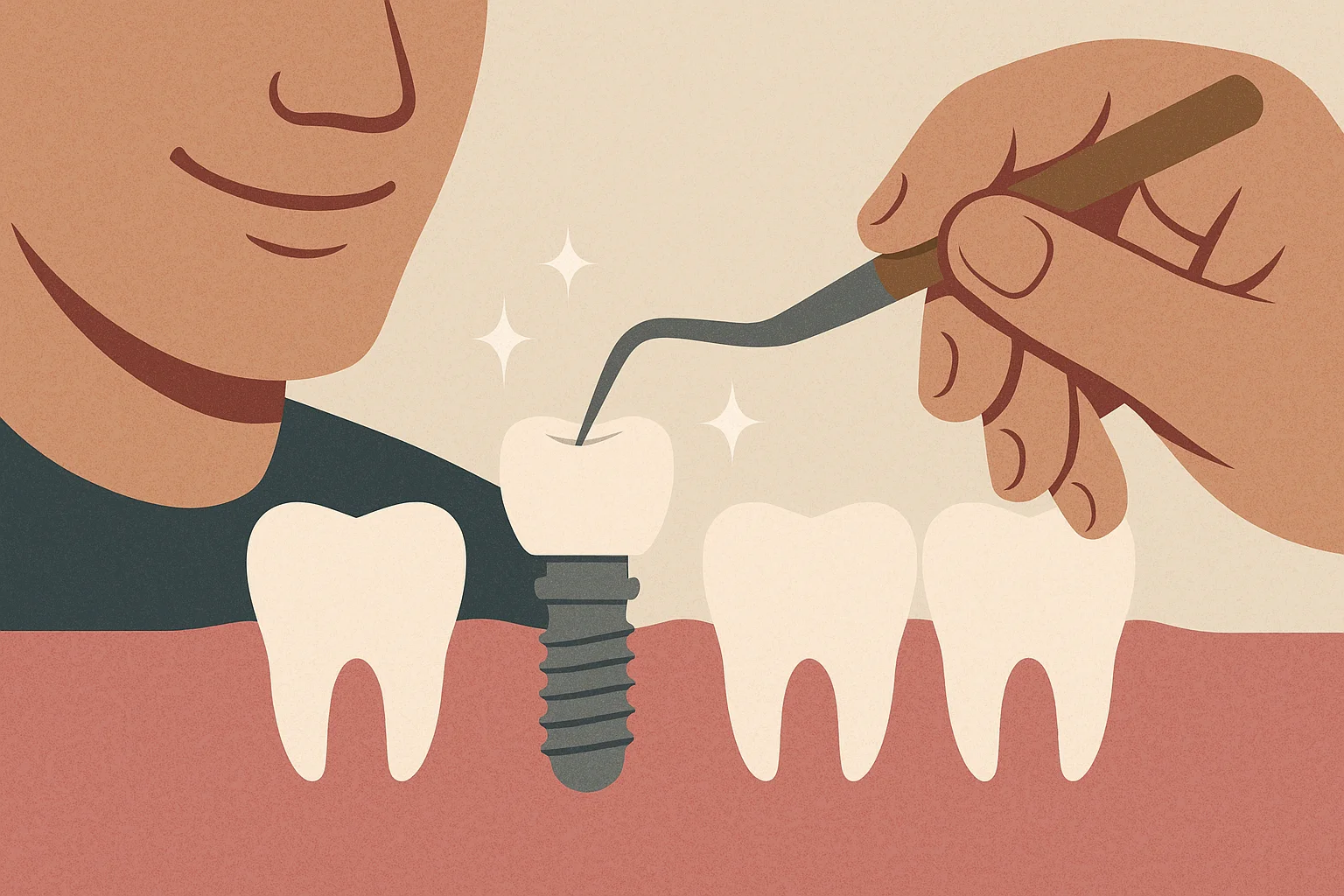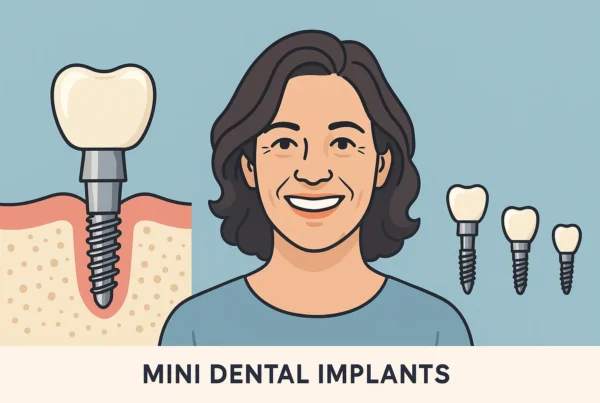The Future of Dental Implants: Advances in Technology and Innovation.
The field of dental implants is undergoing a remarkable transformation, driven by breakthrough technologies that promise to reshape patient care and elevate long-term outcomes. From customized 3D-printed implants to biologic monitoring, today’s innovations are not only pushing the boundaries of what is possible—they are redefining what patients can expect from the entire implant experience. No longer is implant dentistry limited by generic solutions or outdated procedures. Now, patients benefit from precision, personalization, and predictive care—all hallmarks of modern implantology.
At the heart of this revolution are three major areas of advancement: improved patient accessibility, elevated clinical outcomes, and a significantly enhanced treatment journey. As advanced technologies become more integrated into everyday practice, local clinics like Renew Dental are delivering world-class treatments without patients needing to travel to specialized facilities. This article explores the key innovations shaping the future of dental implants and why they matter for anyone considering tooth replacement today.
Key Innovations Changing Dental Implantology
Dental implantology is evolving in exciting directions, and the innovation can be categorized into three main segments: personalized design, real-time health monitoring, and more precise surgical execution.
- Personalized Design with 3D Printing: New methods allow for tailor-made implants that match a patient’s exact oral anatomy. This accuracy leads to a more natural fit, reduced recovery times, and fewer post-operative modifications.
- Biologic Implant Monitoring: Using specific saliva testing markers to track oral health data, dentists can detect and intervene to minimize implant failures from occurring. These very easy but specific tests help customize a patient’s home care and reduces the need for routine in-person checkups and encourage proactive care.
- Guided Surgery and Robotics: Cutting-edge surgical tools improve placement precision and minimize tissue trauma. The result is safer surgeries, less discomfort, and better long-term results.
These technologies offer more than just convenience—they mark a shift toward a patient-first model that aligns clinical expertise with data-driven customization and compassionate care.
3D Printing: A New Era of Customization
3D printing is revolutionizing how dental implants replacement teeth are designed and delivered. This technology allows for highly personalized implant teeth that conform exactly to a patient’s oral structure. By using digital imaging to model the implant’s dimensions, 3D printing ensures each set of implant teeth are tailored for optimal bite alignment, comfort, and aesthetic integration. The result? A dental prosthetic that functions and feels like a natural tooth.
Another advantage of 3D printing is efficiency. The precision of the process eliminates the guesswork often involved in traditional fabrication. This means fewer adjustments after placement and significantly shorter production timelines. For the patient, this translates to fewer visits, quicker recovery, and a smoother journey from planning to final restoration—all without compromising quality.
Salivary DNA Testing: Leveraging Data for Better Care
Testing the DNA found in saliva is ushering in a new age of intelligent dentistry. Equipped with information about what bacteria, yeasts and viruses live inside your mouth, we can now continuously monitor your oral health to ensure an environment that will benefit your natural teeth as well as your implant teeth. This easy to obtain information now allows clinicians to detect and resolve complications before they become symptomatic or severe.
This innovation doesn’t just improve outcomes—it personalizes care. If a patient’s healing process is progressing slower than expected, saliva testing can prompt the dentist to recommend additional checkups, modify hygiene protocols, or prescribe medication. By adapting to the patient’s needs in real time, salivary DNA testing empowers both doctor and patient to co-manage long-term oral health more effectively.
Robotic Assistance: Precision Meets Safety
The incorporation of robotic systems into dental implant surgery has been a game changer. These systems use high-resolution digital scans and software-guided planning to place implants with unparalleled accuracy. Every movement is calculated and controlled, reducing human error and ensuring implants are positioned in exactly the right location to maximize both function and aesthetics.
This precision has far-reaching implications for recovery and safety. Because robots allow for minimally invasive approaches, patients experience less swelling, fewer complications, and reduced reliance on pain medication. These benefits lead to a more comfortable experience and make implant surgery safer and more accessible than ever before.
Material Innovations: Zirconia and Enhanced Titanium
The development of new materials like zirconia and enhanced titanium has significantly improved the performance and safety of dental implants. These materials are renowned for their biocompatibility, meaning they integrate seamlessly with natural tissues and reduce the risk of rejection or inflammation.
These materials also offer superior strength and durability. Zirconia is known for its aesthetic properties, often used in visible areas because it closely resembles natural teeth. Enhanced titanium offers an excellent balance between strength and lightness, providing a solid anchor without placing undue stress on the jawbone. For patients, this means longer-lasting implants and fewer complications.
Regeneration: Broadening Implant Eligibility
For many patients, lack of sufficient bone density has traditionally disqualified them from receiving implants. Today, regenerative therapies—such as bone grafting and stem cell treatments—are changing that. These techniques stimulate new bone growth, creating a strong and stable foundation where one may not have existed before.
This not only expands eligibility but improves outcomes. A regenerated jawbone enhances implant stability, which reduces the chance of failure. Moreover, it shortens the overall treatment timeline, as bone regrowth now happens faster than in years past. This makes implants a realistic option for a broader patient population.

Improving Clinical Efficiency and Patient Comfort
The focus on clinical efficiency and patient-centered care has led to a more seamless dental implant experience. Minimally invasive procedures, digital treatment planning, and streamlined workflows are all improving how care is delivered. Smaller incisions mean less trauma, less downtime, and quicker healing.
In addition, practices like Renew Dental are prioritizing patient comfort by offering personalized treatment plans. Every patient receives care tailored to their unique health profile and lifestyle. This kind of customization ensures that patients feel heard, supported, and satisfied throughout the entire treatment journey.
What’s Next: Embracing Technological Progress
The next chapter of dental implant innovation will be defined by accessibility, artificial intelligence, and biomaterial science. AI-powered diagnostics are making it easier for dentists to analyze complex data sets and spot problems early. This not only improves diagnostics but also streamlines treatment planning.
Biomaterials are also evolving. Future implants may be customized not only by shape and size but also by cellular compatibility. This means implants that respond to individual immune responses, reducing rejection and enhancing integration. And perhaps most importantly, these advancements are becoming more accessible—ensuring that patients everywhere can benefit from the best that modern dentistry has to offer.
Final Thoughts: The Implant Experience of Tomorrow
The future of dental implants is here—and it’s smarter, faster, safer, and more accessible. With the integration of 3D printing, DNA saliva testing, robotics, and regenerative medicine, dental implants are becoming a more reliable and patient-friendly solution than ever before.
These innovations aren’t just improving teeth—they’re improving lives. By reducing treatment times, enhancing comfort, and expanding access, the next generation of dental implant technology is making confident smiles more achievable for more people.
Don’t wait any longer for the smile you’ve been dreaming of. Contact Elaine Wu ReNEW Dental in Tewksbury, MA today! Call 978-451-1500 or visit our website to schedule your consultation.
Schedule your consultation today!
FAQs
How do technological advancements in dental implants benefit me as a patient?
Advanced technologies such as 3D printing and computer-guided surgery provide implants that fit better and require less recovery time, making your dental experience more comfortable and efficient.
Are enhanced titanium implants safe to use?
Absolutely. Titanium implants are built from biocompatible materials and use safe, clinically tested technology designed to improve bone healing without affecting comfort.
Will these advanced dental implant treatments be available to me?
Yes. Renew Dental is committed to offering the latest implant innovations to all patients in our care. Our goal is to make world-class treatment accessible, no matter your starting point.
Related Articles
- Dental Implants
- Same-Day Dental Implants
- Affordable teeth implants
- Dental implants surgery
- Dentures with implants
- Full Mouth Dental Implants
- Mini Dental Implants
- Zirconia Dental Implants
See More Reviews From ReNew Dental Denture and Implant Center. View information about local places in our community. Get Driving Directions to Our Practice
If you’d like to get an estimate on your dental implants, take our implants quiz here.




